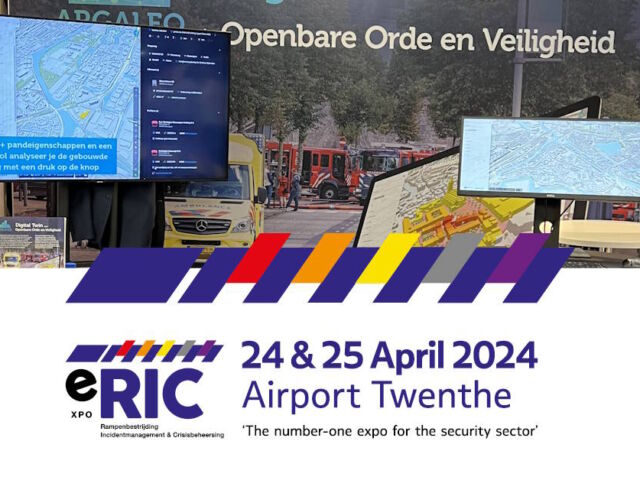Zuid-Holland wants to be the most accessible cycling province. Cyclists should be able to get to work or school quickly and safely, and be able to enjoy recreational cycling. The province therefore ensures that there are enough good, safe cycling paths and makes it easier to switch from the car or public transport to the bicycle. The aim is that more people will choose the bicycle for commuting and that they will use it to travel longer distances. To support decision-making on cycling policy, the province, together with the company Argaleo and Breda University, has developed a data dashboard, the so-called Digital Twin. This converts bicycle data into information that helps make South Holland even more attractive to cyclists.
The provincial Bicycle Plan 'Samen verder fietsen' 2016-2025 and the resulting Bicycle Implementation Agenda clearly indicate: Zuid-Holland wants to be the most accessible province, also by bicycle. The Bicycle Plan and the Implementation Agenda were unanimously adopted by the Provincial Executive in February 2016 and the Provincial Council in April 2016. The Implementation Agenda is a concrete elaboration of the Cycling Plan 'Samen Verder Fietsen' (Cycling Together Further) and describes a number of tasks the province is working on with various partners in the coming years. These tasks are translated into projects that will ensure that cyclists can get from A to B faster, safer and more easily. The province does this by making it easier to switch from public transport or car to cycling and by improving the existing cycling network. Where possible, innovative, energy-neutral cycle paths are constructed.
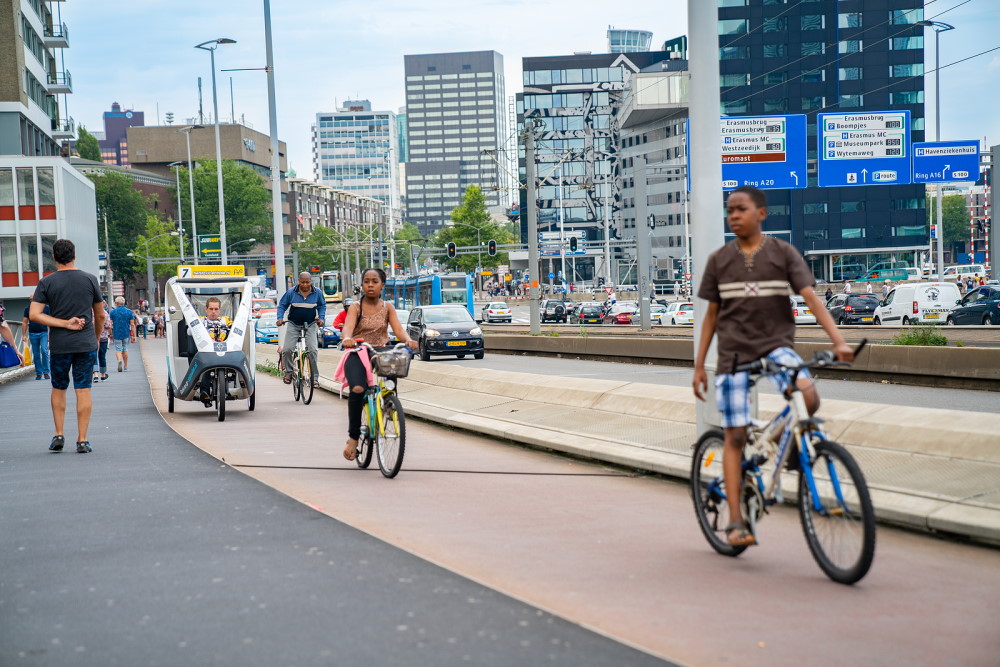
Data-driven policy innovation
To answer current questions about cycling policy, various data sources, visualisations and analyses are linked in the dashboard. For instance, it provides insight into the cycling accessibility of bus stops, train stations and schools. The attractiveness of current bicycle routes has also been made clear, with an examination of missing links in addition to delays. These are very valuable insights that may be included in the "Bicycle Future Assessment" currently being developed on a national level.
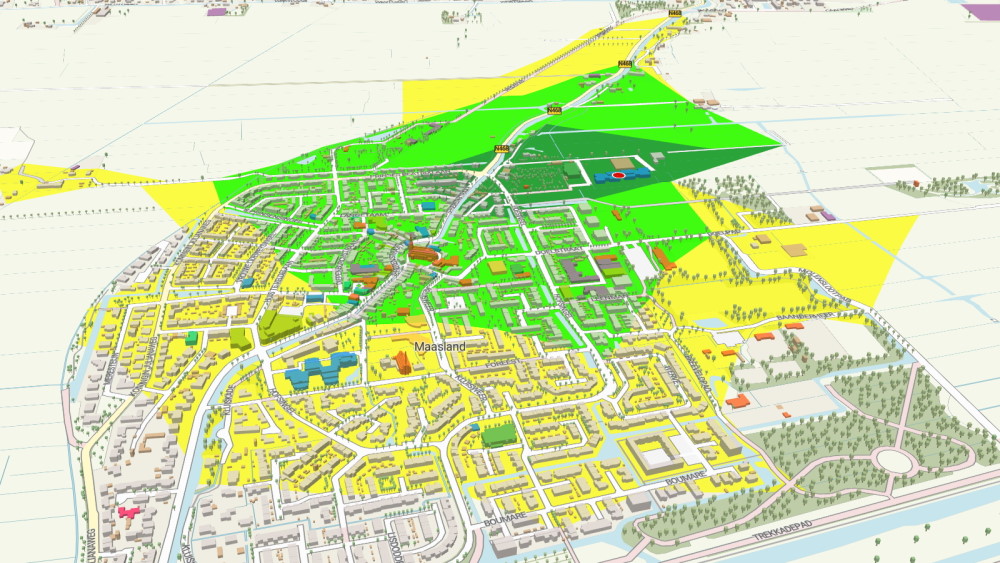
School accessibility
In addition to province-wide analyses, the cycling time between different locations can also be analysed very practically with a route planner. This shows not only the shortest, but also the fastest routes. "This information helps us to weigh up alternative routes and thus choose the most effective improvements", says Ron van Noortwijk, Cycling policy advisor at the province of Zuid-Holland.
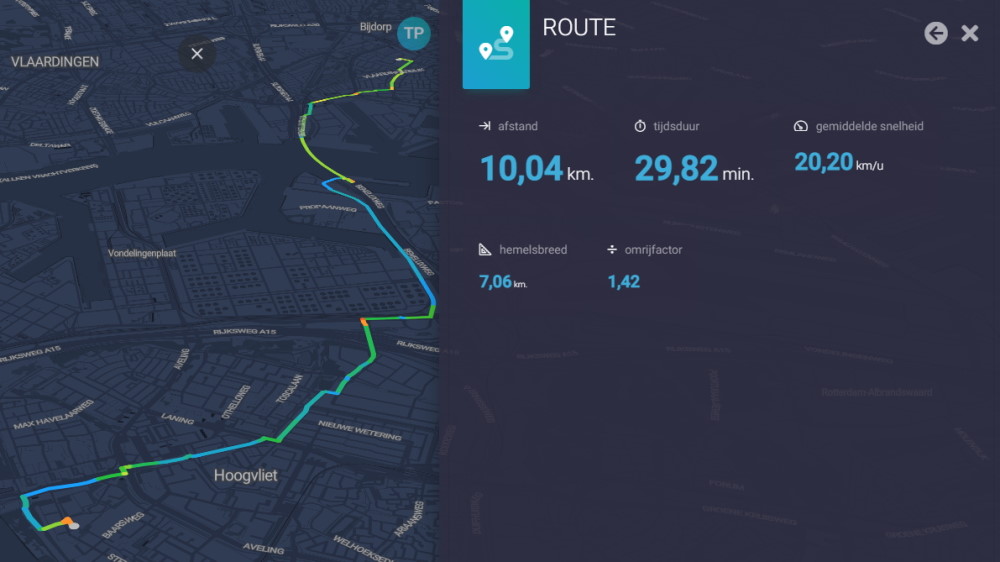
Route analysis
Knowledge acceleration
One of the success factors behind knowledge development and innovation is the cooperation within the data-driven innovation programme Dutch Cycling Intelligence. Within this informal network of ambitious governments, the developed knowledge and insights are actively shared and made available to other parties. "Innovations developed with tax money directly benefit all governments. This flywheel effect will hopefully bring about a turnaround in the current thinking about cooperation and the creation of ecosystems," says Joost de Kruijf, Programme Manager Dutch Cycling Intelligence.
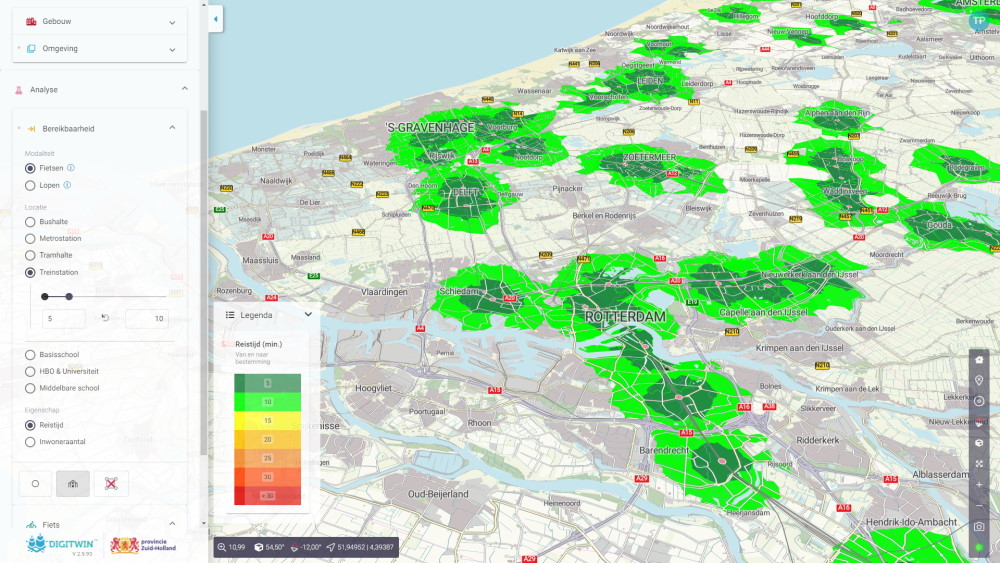
Dashboard Dutch Cycling Intelligence
more news
Subscribe now to the newsletter and stay informed of our digital twin innovations!




